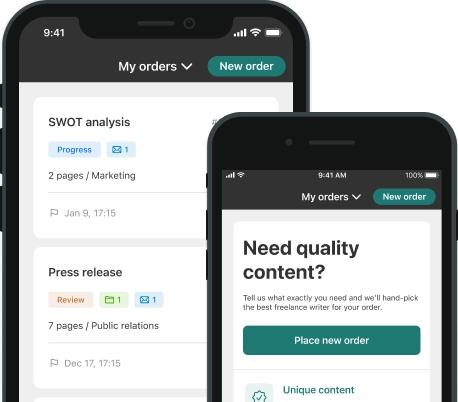Posts by Joan Young - Page 25
GCSE Critical Thinking: Basic Guide on Qualifications
How accurate the evaluation of someone’s critical thinking can be? There are loads of debates swirling around the ability to critically analyse the surroundings and the above mentioned question  because the phenomenon is so abstract and individual that not a lot of educational institutions venture into assessing this skill … except for the ones in the UK.
because the phenomenon is so abstract and individual that not a lot of educational institutions venture into assessing this skill … except for the ones in the UK.
What is GCSE Critical Thinking?
GCSE is a certification system that was implemented back in 1988 and overtook other assessment ways. And in 2009 it expanded up to critical thinking. There are 2 types of qualifications you can get by passing GCSE:
- Advanced Subsidiary GCE (introduction to critical thinking, basic concepts and principles of analysis)
- Advanced GCE (deeper understanding of critical analysis and evaluation, ability to form fully-featured arguments)
Inspiring Real-Life Stories to Cover in Your GCSE English Coursework
We understand that GSCE English coursework is not one of your favourite tasks because it requires a lot of energy, hours and mind work. However, it is one of those assignments that you hesitate  to approach, but get deeply involved in after plunging into it. The reason for it is that the task challenges you to appeal to the readers emotionally which is not that easy when you have no idea who will go through your essay. It’s also cumbersome because you have to demonstrate your potential as a writer as well as show the level of your English language knowledge.
to approach, but get deeply involved in after plunging into it. The reason for it is that the task challenges you to appeal to the readers emotionally which is not that easy when you have no idea who will go through your essay. It’s also cumbersome because you have to demonstrate your potential as a writer as well as show the level of your English language knowledge.
If you feel at loss as you have no idea what you can write about in this coursework, have a look at our inspiring stories of real people that will help you find that emotional spot. And after that you’ll worry about grammar, punctuation and style because it’s always easier to edit the existing piece than creating it from scratch.
The Most Current Changes in GCSE English Syllabus to Keep in Mind
Wondering what the fuss around GCSE 2015 changes is all about? Sit comfortably and prepare to read an article as we’re going to explain all the new features for you. Why do you need to take the trouble at all? Well, if you are a student planning to pass GCSE English, pay attention because these changes will have a great effect on both exam process and grading (in case you worry about your results).
trouble at all? Well, if you are a student planning to pass GCSE English, pay attention because these changes will have a great effect on both exam process and grading (in case you worry about your results).
1. New Grading System
The most notable change is transfer from A-C marks to 1-9 points with 1 being the lowest, and 9 – the highest. Moreover, the Department of Education limited the number of people who can get the best card to 20% of those who receive 7 and higher. So, if you counted on the top score, you’ll have to press harder.
What does it mean for you? Nobody can predict the exact results, but the teachers are worried that the students will get worse grades because of the variation (for example, you could do fine and receive a C while, right now, your “fine” will be also graded as “worse fine” (4) or “better fine” (5).
Tips on Meeting IGCSE and GCSE Equivalent Qualifications in English Literature
If you think (and secretly hope) that reading some novels and poems will be enough to pass the test on IGCSE or GCSE equivalent qualifications in English literature, we have to disappoint you –  no, it won’t. This certificate proves that you are a holder of a certain number of skills applicable not only in the sphere of English literature but in everyday life. Let’s find out what those skills are and what they mean.
no, it won’t. This certificate proves that you are a holder of a certain number of skills applicable not only in the sphere of English literature but in everyday life. Let’s find out what those skills are and what they mean.
So, to be fully prepared for the IGCSE or GCSE in English literature, you need to be able to:
Re-Tell the Narrative or Story
This is the basic skill that presupposes you are recalling and narrating the story without difficulties.
How to Improve Professional Writing in the Field of Political Science
One effective strategy for honing your writing skills is to analyze your weaknesses and actively seek opportunities to enhance them, which can be facilitated by seeking guidance from experts or utilizing resources like a buy a college paper service.
1. Learn how to Read Critically
Don’t trust everything written in the newspapers or shown on TV. Political writers cannot afford it, they need to boost their skill of critical reading. Pay attention to nuances and compare what it is said about the issue by different stakeholders.
Most political science writers follow the similar system in their writing:
- introduce an observation or a puzzle, which lead to them asking a question;
- investigate other researchers’ work to come up with an argument in response to the question asked; and
- use proof (qualitative or quantitative data) to test their argument.


